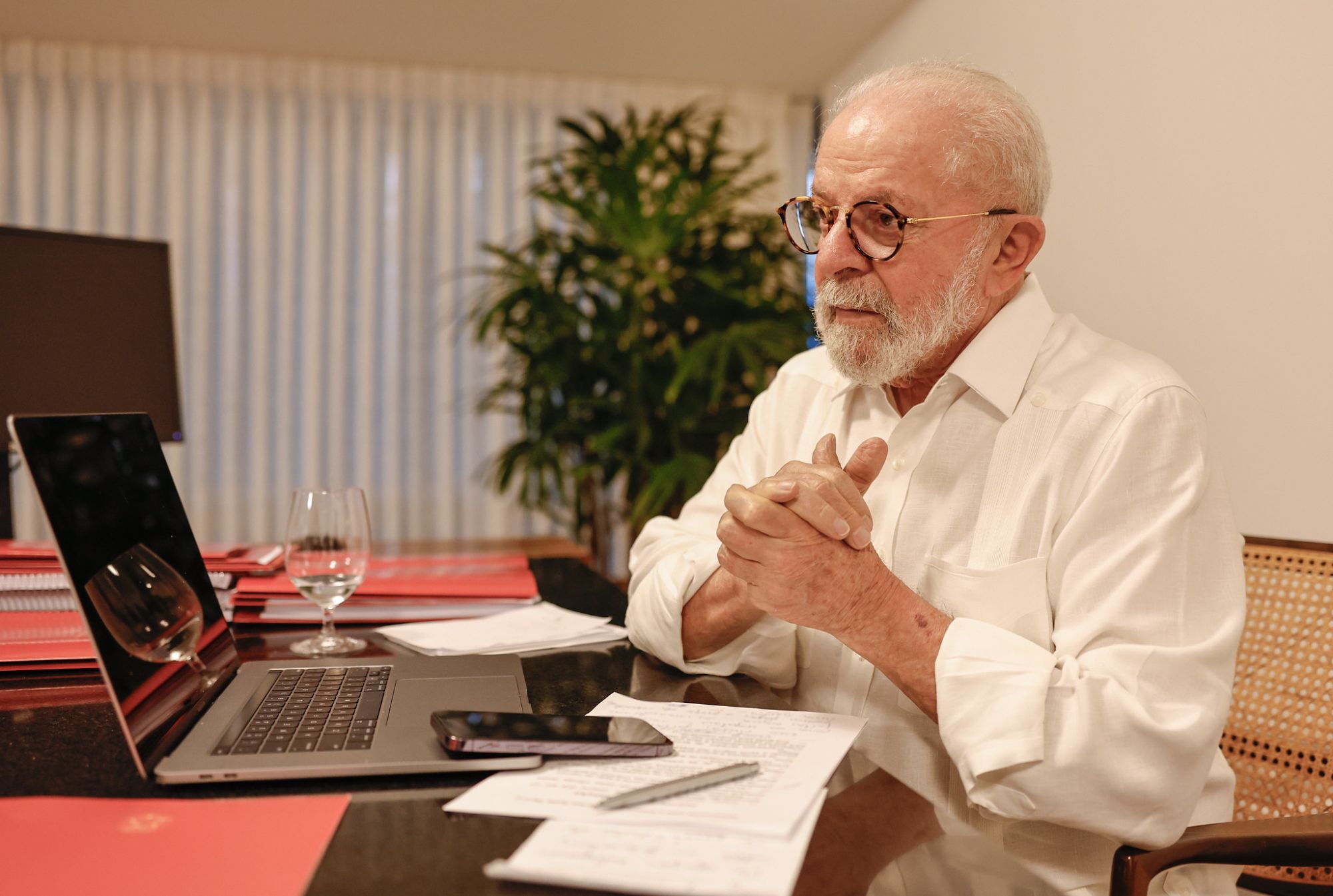When Jair Bolsonaro was disqualified from running for public office for eight years on 30 June, social media was full of humiliating memes.
The former president’s conviction by the Superior Electoral Court (TSE) seemed the logical consequence of the climate of democratic restoration that followed the coup attacks of 8 January. That fateful day for Brazilian democracy has only facilitated the forcefulness of the three powers.
Lula dismissed high-ranking military and intelligence officers. Then, in mid-September, the Supreme Federal Court (STF) sentenced the first defendant of 8 January to 17 years in prison, confirming the hard line of the judiciary against coup acts. And Congress approved the criminal prosecution of Bolsonaro, military supporters and former ministers.
The impunity enjoyed by Bolsonaro while he governed the country is over. Moreover, his popularity has been eroded by multiple cases of corruption, especially the scandal of appropriation of jewelry given by Saudi sheikhs.
The judicial machinery has his family, including his wife Michelle, cornered. And it has pushed Mauro Cid, the lieutenant colonel who was in his service, to sign a collaboration agreement with the Federal Police (PF) in exchange for a reduced sentence. Cid’s statements directly implicate Bolsonaro in the drafting of a coup document, something that further complicates the future of the former president.
Unraveling Bolsonarism?
In February, the newspaper Folha de S. Paulo concluded the first month of Lula’s government had been more left-wing than his first term in office in 2003. After what was an unorthodox inauguration, Lula got down to work by giving the most important positions in his government and public companies to established members of the left-wing Partido dos Trabalhadores (PT) – the Workers’ Party.
Operation Liberation to remove the garimpeiros (illegal gold diggers) from the Yanomami Indigenous reserves raised the expectations of the left. But Lula, who has conservative forces within his government, has opted for a realpolitik without major progressive measures to appease the powers that be and the opposition – something that frustrates his electoral base.
He is prioritizing the restoration of social programs eliminated or diminished by Bolsonaro. To name a few, the government has relaunched Minha Casa Minha Vida (construction of social housing), the historic Bolsa Família which lifted millions of Brazilians out of poverty, the Mais Médicos program (hiring doctors in remote regions) and the Paulo Gustavo Law (support for culture) vetoed by Bolsonaro, among other things.
To further dismantle Bolsonaro’s legacy, Lula signed a decree overturning the relaxation of the use of weapons and adopted various measures to support environmental conservation, higher education and scientific research.
Hostile Congress
But in June the Lula government was dealt a hammerblow. A provisional measure cooked up in Congress stripped the Ministry of Environment and Climate Change of its powers and withdrew the power to declare Indigenous lands from the newly created Ministry of Indigenous Peoples.
The measure contained a veritable time bomb, bordering on illegality, to dismantle the political power of the government. Lula had no choice but to negotiate with the architect of the move, the conservative president of the Congress Arthur Lira.
The blackmail was explicit: Lira demanded more public budget for the deputies (along the lines of the much-criticized “secret budget” of the Bolsonaro era) and more political posts for the centrão (the opportunistic bench of conservative deputies who ally themselves with whoever suits).
Since then, the president has worked to open up space for forces from Lira’s entourage. By January, Lula had already incorporated centrist parties into his government (such as the Brazilian Democratic Movement (MDB) and the Social Democratic Party (PSD) and even right-wing parties, such as União Brasil, the party of former judge Sérgio Moro, who worked for his imprisonment.
In recent months, Lula has handed over ministries to the Republicans (linked to the evangelical church) and the Progressive Party (PP, Arthur Lira’s political force), to win their votes.
The result of the 2022 elections left the legislative chambers slanted to the right. Lula’s left-wing and centrist allies accounted for 223 deputies in a Congress of 513. The base of deputies aligned with Bolsonarism then amounted to 197. The formation of a broad democratic front meant that Lula could once again count on Simone Tebet’s Movimento Democrático Brasileiro (MDB) (42 deputies) and the Social Democratic Party (PSD, 42).
Even so, legal tools such as the Proposals to Amend the Constitution (PEC), which serve to modify articles of the constitution, require a three-fifths majority in Congress (308 deputies). For this reason, Lula sought an alliance with conservative forces with explicit weight in the chambers.
The result is this: one year after Bolsonaro’s narrow electoral defeat, Lula controls the Congress. After months of tense negotiation, the president has managed to get the deputies of 24 of Brazil’s 27 states to support his government’s measures. But he has paid a price.
What would have happened if Lula had decided to govern without the support of the centrist party and implemented distinctly leftist public policies?
In all likelihood, the Lula government would not have gained enough support to legislate and would have found itself with a Congress and a Senate constantly approving measures contrary to the government’s agenda.
But even with these alliances, Brazil’s political equilibrium is not guaranteed. Nor is the unprecedented complicity of the Supreme Federal Court (STF) with the government’s public policies enough.
The Senate’s approval of the Temporary Framework, which outlaws Indigenous lands that were not occupied before the promulgation of the 1988 Constitution, is the greatest example of a legislative revolt with an unpredictable outcome.
The Senate approved it just a day after the STF declared the law unconstitutional, a tour de force. Lula himself subsequently had to veto the text, which is being rewritten in Congress and is already a major headache for the government.
Lula’s approval and polarization
In the midst of the Bolsonaro family’s shipwreck, Lula’s popularity remains high. The control of inflation (around 5%) and the economy (GDP growth is expected to be around 3% by the end of the year) provides an unexpected lifeline for Lula. Some 54% of Brazilians approve of the president’s performance, compared to 42% who disapprove, according to the October Quaest poll.
Lula’s popularity is visibly higher than the one Bolsonaro enjoyed a year after the elections, which was around 30%. Lula also has the approval of 25% of the voters who voted for Bolsonaro in the second round in 2022.
However, the Quaest poll also shows some less favorable results for the current president. Lula’s trips abroad, one of the flagships of a government that boasts of having returned to the world, seem to be backfiring. Over half – 55% – of Brazilians think that Lula travels too much and 60% think the trips do not bring good results.
Moreover, the war in Gaza has been jumped on by the Bolsonaro family. The fact that Brazil does not use the term terrorist to define Hamas, following UN guidelines, has served as ammunition for the powerful fake news propagation ecosystem of the Brazilian far right, which insists on linking Lula and the left to the Hamas attack.
Bolsonaro’s first tweet after the attacks in Israel claimed the “terrorist group” Hamas congratulated Lula after his election victory. Some prominent figures in Bolsonarism have gone further, framing Hamas, Hezbollah and the Lula government under the umbrella of terrorism.
Some of the former president’s tweets, replete with Israeli flags, conclude with “God bless Israel, the West and Brazil”, instilling a cultural war against the supposed forces of evil that allegedly threaten the West.
Political polarization remains very much alive in Brazil. The latest Datafolha poll reveals 29% of those interviewed declare themselves to be pro-Lula ‘Petists’, while 25% identify with the hard line of Bolsonarism.
Lula now faces the complex challenge of implementing left-wing policies while striking deals with the conservative forces on which his government depends. For the moment, he is benefiting from the strategic truce. After the trauma of Bolsonaro’s government, the political forces and social movements that supported Lula’s return have decided not to publicly criticize the government too much.
Bernardo Gutiérrez (@bernardosampa on Twitter) is a Spanish-Brazilian journalist, writer and researcher living in Madrid. He writes about politics, society, technopolitics and participation technologies. He has published the books Calle Amazonas (Altaïr, 2010), collaborated in collective books such as ‘Amanhã vai ser maior’ (Anna Blume, 2014) and was one of the editors of ‘JUNHO: power of streets and networks’ (Friedrich Ebert Siftung , 2014). His last book: “The day after tomorrow. Journey to the Spain of change” (ARPA editors, 2017). He works at the MediaLab Prado in Madrid.
This article appeared originally in Open Democracy – https://www.opendemocracy.net/





